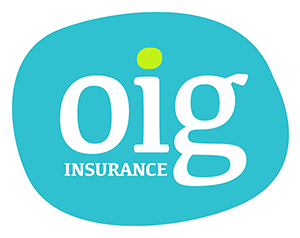What is Workers’ Compensation?
Workers’ compensation laws provide money and medical benefits to an employee who has an injury as a result of an accident, injury or occupational disease on-the-job. It is intended to benefit both the employee and employer. The employee receives money and medical benefits in exchange for forfeiting the right to sue the employer. The employer receives immunity from court actions against them by the employee in exchange for accepting liability that is limited and determined. The question of negligence or fault is usually not at issue.
If an employer fails to obtain required coverage and an accident occurs, the injured employee may either file a lawsuit against the employer in civil court or file a claim against the state workers’ compensation system. Monetary exposure to a suit in civil court can be extremely significant to the employer. Stop-work orders and fines can be levied in addition to injunction and assessments against the employer. Employers who try and circumvent the law may also expose their personal assets and other business assets as well.
How are Workers’ Compensation Premiums Determined?
There are three criteria which the insurance companies generally use to determine the payment of premiums. These are (1) the payroll; (2) the employer classification; and (3) the experience record and number of accidents and severity of injuries included for this employer.
The first element considered is the payroll and these are determined in blocks of $100 of payroll sums. The second consideration is how an employer will be classified into different categories by industry type. Each classification is designated to pay a certain amount of workers’ compensation premiums per $100 block of payroll. Roofers who are at a high exposure to injuries will have a higher experience factor than office personnel who have a low exposure to injuries. The last consideration is what is known in the industry as the “experience modification factor.” This calculation applies to policies with more than $5,000.00 in premiums. In determining the experience mod, the individual employer is compared with other employers within the classification based upon the frequency of accidents and severity of injuries. The more accidents an employer has had in the past, the higher the modification rating.
How and Why to have a Safety Program?
Every employer should want to increase their safety program and reduce on-the-job accidents. You can reduce your workers’ compensation exposure by an effective safety program. Since a large part of how much is paid for workers’ compensation premiums is based upon frequency of injury, the premiums can be reduced with an effective safety program.
One person within your organization should be appointed safety manager and should have the responsibility of full implementation of a safety program. Part of the safety program should include written rules and procedures to indoctrinate new employees, require periodic inspections, investigate accidents, provide first-aid care and have an effective return-to-work program.
The employer should also be aware that an insurance company has the right to inspect the safety of the workplace. A good safety program requires the involvement of all employees. There are safety programs which can help you comply with the Occupational Safety & Health Act. You can request your workers’ compensation carrier to provide a safety consultant to help you implement safety programs, etc.
OSHA also provides consultation, training and information services for employers. It also has publications available to help you with your insurance coverage and compliance standards.
Tips for Determining Employee versus Contractor Status
It is always a difficult problem to determine who is an employee or contractor and preventing those hired as contractors from being employees, or vice versa. Some of the major factors to be considered are as follows:
- The extent to which the worker has unreimbursed visit expenses. Independent contractors are more likely to have unreimbursed expenses than employees. Employers should not routinely approve reimbursement requests for business-related expenses, because this could be used as evidence of employee status.
- The extent of the workers’ investment. An independent contractor often has a significant investment in the facilities he or she uses in performing services for someone else. One of the most significant investments is office or work space. employers should not provide tools, equipment, or supplies to individuals who are hired as independent contractors.
- The extent to which the worker makes services available to the relevant market. If the worker does the same work for other companies, it’s a key indicator of independent contractor status.
- An employee is generally paid by the hour, week, or month.
- Independent contractors are usually paid by the job.
- An independent contractor usually makes a profit or loss on the job. Employees receive paychecks whether the company they work for makes money or not.
- Does the employer provide employee-type benefits such as insurance, pension plans, vacations, or sick days? Independent contractors do not usually provide this type of benefit.
- Workers who are hired on a permanent basis are usually considered employees. If a worker is hired with the expectation that the relationship will continue indefinitely, this shows generally an employer/employee relationship.
How to choose a Workers Compensation carrier
Many different companies offer workers’ compensation insurance. While rates are set by the state of Florida, different companies choose to write certain Workers’ comp risks while avoiding others. OIG Insurance has access to multiple companies, to ensure that we can find a highly rated company to write your workers’ compensation insurance. Certain companies also will pay a dividend back to the employer at the end of the policy year. This dividend can be as high as 39% and is based on a variety of factors including the type of business, annual premium, number of claims, and the number of years with that company. Let OIG Insurance help you navigate these sometimes confusing waters and make sure that you get insurance with the right company that best suits the needs of your business.

